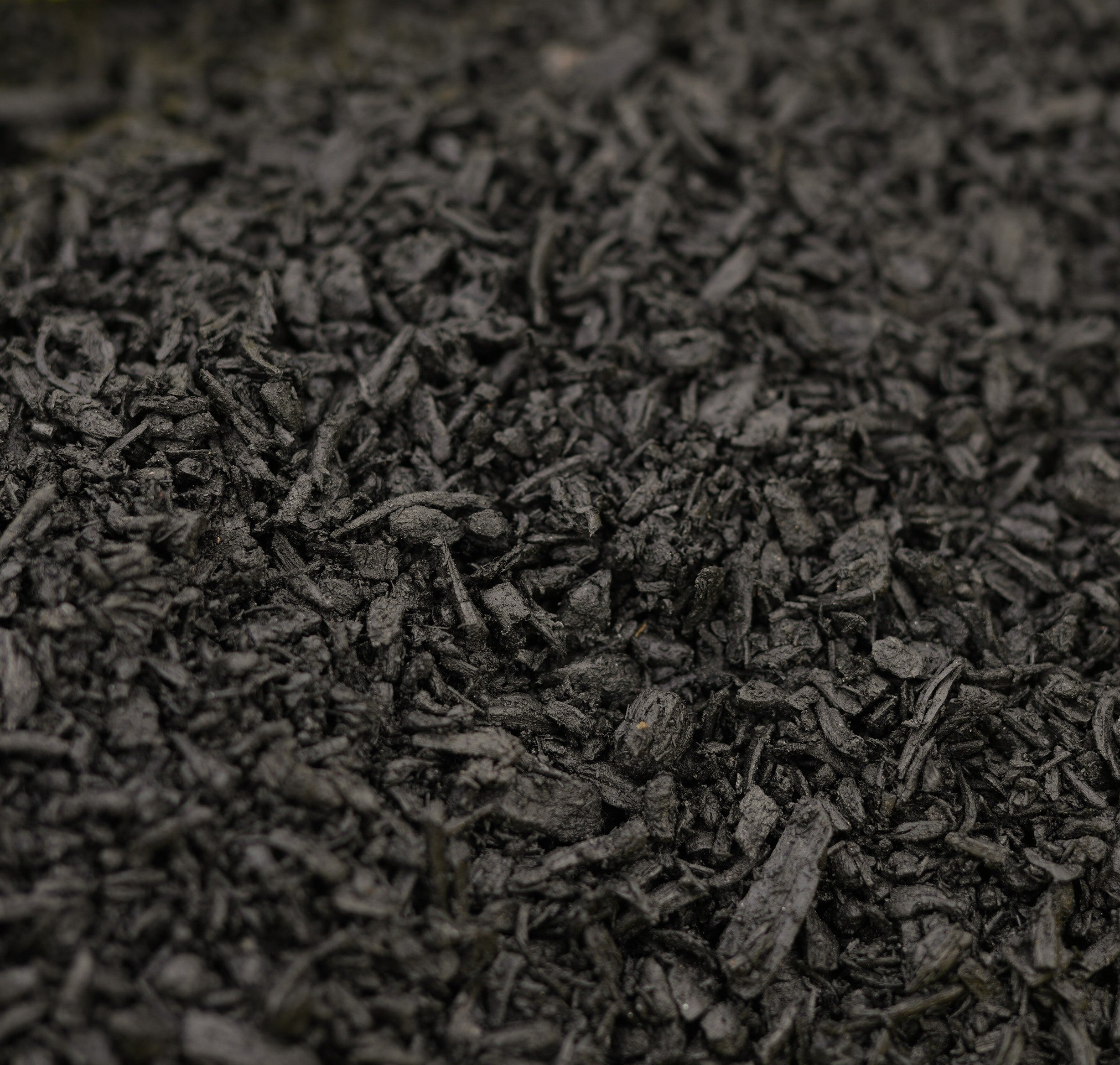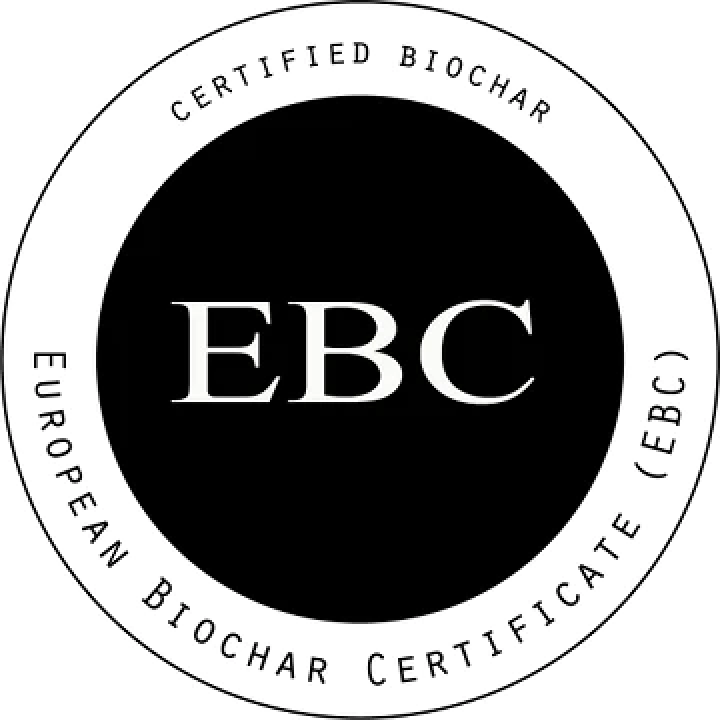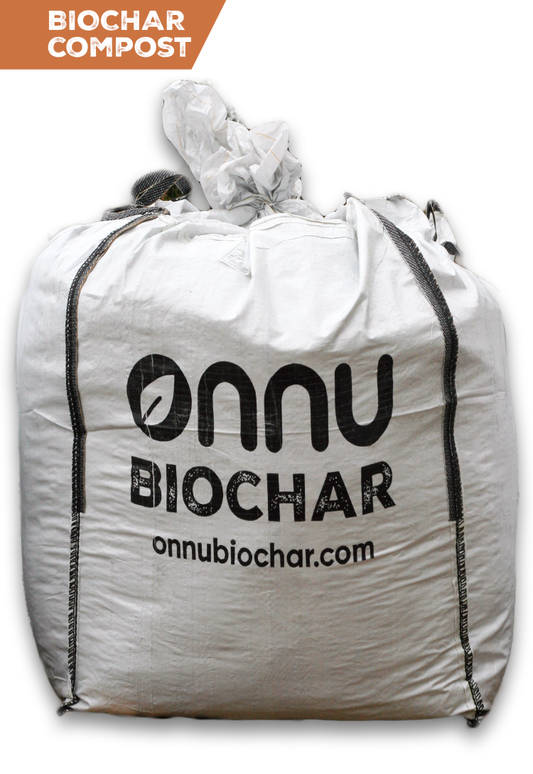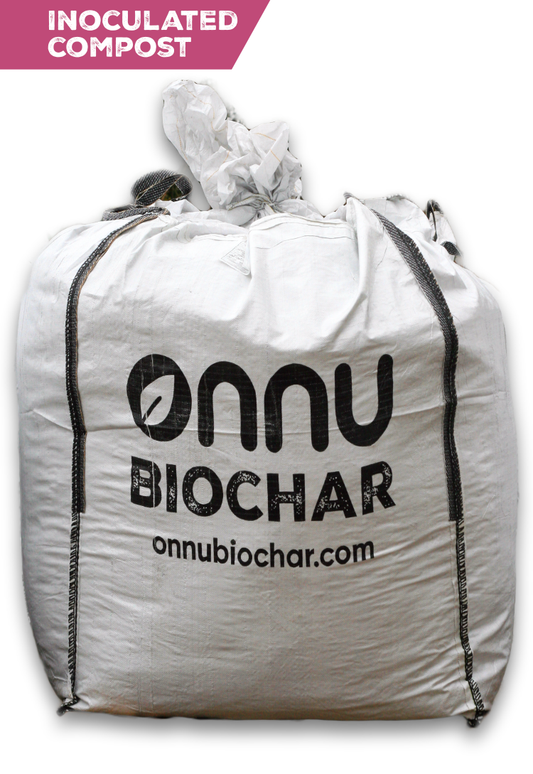The growing need for
Quality Biochar
Scale, Quality & Expertise
With rising challenges in soil degradation, water retention, and carbon sequestration, biochar has become essential for agriculture, horticulture, landscaping, and climate change mitigation in the UK. Meeting this demand requires scalable production, consistent quality, and adherence to strict certification standards.
Why certification?
Certifications guarantee that the biochar meets strict environmental and performance standards. They serve as industry benchmarks, ensuring biochar is sustainable, contaminant-free, and effective. For users and businesses, certifications provide trust and quality assurance while confirming climate-positive impacts.
The European Biochar Certificate (EBC) is one of the leading standards for biochar quality and sustainability. Onnu Biochar proudly meets these stringent requirements, ensuring our products are safe, effective, and environmentally responsible.

European Biochar
certificate
The European Biochar Certificate (EBC) is the benchmark for high-quality, sustainable biochar production. It establishes strict guidelines for safety, performance, and environmental impact, ensuring that biochar delivers measurable benefits for soil health, carbon sequestration, and sustainability.
The EBC was established to provide customers with a trusted quality standard and to enable producers to demonstrate that their biochar meets clearly defined and widely recognized benchmarks. Its guidelines aim to promote and ensure the controlled production of biochar through processes that are scientifically validated, legally compliant, economically feasible, and practically effective.

facts, eligibility, applications:
All about ebc
Criteria
The EBC examines several physical and chemical properties of biochar to certify and classify biochar. Some of these include total and organic carbon content, H/C ratio, water content, presence of heavy metals, nutrient levels, pH, salt content, bulk density, presence of organic contaminants, etc.
Certification classes
To accommodate the expanding applications of biochar, the EBC has established certification classes as follows:
- EBC-BasicMaterials: Introduced as the basic and fundamental certification class that defines what can or cannot be considered as biochar
- EBC-ConsumerMaterials: For biochar to be used in products that may come into direct skin contact with consumers or food-grade products.
- EBC-Urban: For use in tree planting, park maintenance, sidewalk embellishments, ornamental plants, and rainwater drainage and filtration.
- EBC-Agro: For use in conventional agricultural practices, focusing on improving soil health, enhancing crop productivity, and contributing to sustainable farming systems.
- EBC-AgroOrganic: Specifically designed for use in organic farming systems, this certification ensures that the biochar meets stringent quality and safety standards suitable for organic agricultural practices
- EBC-Feed: Specifically designed for biochar intended as an additive in animal feed. It meets equally all requirements of the EU feed regulation but not those of the EU fertilizer product regulation.
- EBC-FeedPlus: Highest standard system for biochar intended as an additive in animal feed. It meets all EU and EFTA regulations relevant for animal feeding and agricultural soil applications. It can be used for all livestock operations and also be applied to soil.
Established in
2012
Developed by
Ithaka Institute
Managed by
Carbon Standards International (CSI)
EBC vs WBC:
What's the difference?
'
While the EBC aligns closely with EU and EFTA regulations, the World Biochar Certificate (WBC) accommodates diverse regulatory environments across international markets
EBC certification is mandatory for biochar used in agriculture in
Switzerland
Number of EBC/WBC accredited laboratories for biochar testing
3
Learn more about EBC here.
Our biochar is EBC-certified.
What makes
Good biochar?
EBC is thus the 'gold standard' for biochar certification. But what else makes 'good biochar'?
The biochar properties depend heavily on the feedstock and the pyrolysis process conditions involved. Below is an explanation of these key factors.
Feedstock properties
A feedstock's physical and chemical properties play a vital role in deciding the properties of biochar that will be produced. Some of the key properties include:
Feedstock Source & End-of-life treatment
As an environmentally positive solution, it is important to consider the current uses of the biomass.
Ideal sources of biomass are those that are currently destined for disposal or incineration. Using these ensures that we don't have any negative environmental, social or economic impacts on existing supply chains. Biomass containing high protein, for example, may deliver more value if it returned to the food chain.
As a company that firmly believes in the principle of Triple Bottom Line (Planet, People, Profit), this choice ensures that we support profitable projects without doing injustice to the planet and its people.
What makes onnu biochar
Good?
From achieving EBC certification to ensuring Puro compliance, every step of our process reflects our dedication to excellence and environmental responsibility. Our expertise in biochar production, paired with the use of carefully selected sustainable feedstocks, enable us to create products that are both effective and eco-friendly. With the scale to meet diverse needs and the multi-purpose functionality to serve various applications, Onnu Biochar is a trusted solution for enhancing soil health while supporting sustainable practices.












